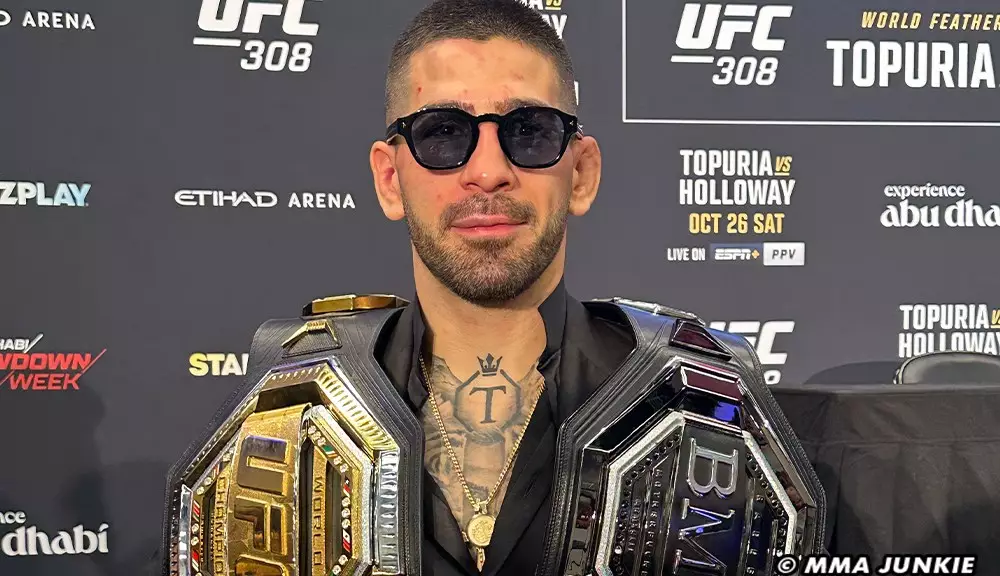The mixed martial arts landscape is notoriously dynamic, often characterized by competing narratives and emergent rivalries. Recently, two icons of the sport—Henry Cejudo and Kamaru Usman—voiced their diverging opinions on what could be the most anticipated UFC matchup of 2025. At the heart of the discussion lies the heavyweight title-unification clash between Jon Jones and Tom Aspinall, as well as the potential duel for dual-champion status between Ilia Topuria and Islam Makhachev.
Jon Jones (28-1 MMA, 22-1 UFC) has an undeniable legacy as one of the greatest fighters in mixed martial arts history. His forthcoming heavyweight bout against Tom Aspinall (15-3 MMA, 8-1 UFC) is framed as a significant event, primarily due to Jones’ long-standing reputation and unbeaten record. Kamaru Usman argues that this bout has the makings of the biggest fight, focusing on Jones’ allure as a fighter who has never succumbed to defeat. Such a narrative underlines the importance of historical context and the weight of legacy in the fight game.
Jones’ stature not only draws attention to the heavyweight division but also raises questions about the sustainability of his reign. Always a polarizing figure, Jones can evoke admiration and disdain in equal measure. Whether his fight with Aspinall will live up to its hype remains to be seen, but Usman’s enthusiasm about its potential suggests that a title bout involving Jones could surge interest levels far beyond what most other matchups might offer.
In juxtaposition to Usman’s viewpoint, Cejudo advocates for the significance of Ilia Topuria’s pursuit of dual-champ status. Topuria (16-0 MMA, 8-0 UFC)’s potential clash with lightweight champion Islam Makhachev (25-1 MMA, 14-1 UFC) presents a different narrative arc—one that emphasizes competitive meritocracy over legacy. Cejudo contends that the fight between Makhachev and Topuria could not only surpass the heavyweight unification bout in terms of excitement but also highlight the competitive dimensions within the UFC.
Cejudo’s argument is particularly compelling when he cites Topuria’s victories over elite fighters, including his conquest of former pound-for-pound king Alexander Volkanovski. The idea is that if Topuria can emerge victorious against Makhachev, he would not only assert himself at the apex of the featherweight division but also claim the lightweight title, significantly impacting the sport’s hierarchy. This narrative shift places emphasis on the emerging talent and the electrifying possibilities that arise when young fighters challenge established champions.
The dialogues between Cejudo and Usman underscore an essential conundrum in the UFC: how to balance legacy and competition. While both bouts have their merits, the excitement lies in the unpredictability of outcomes. Fighters like Topuria represent the future of the sport, embodying the ever-evolving nature of mixed martial arts.
As MMA continues to grow, fans and analysts alike will continue to debate the significance of various matchups, but what remains clear is that the narratives generated by fighters will be as pivotal as the fights themselves. Whether one leans towards the traditionalist view represented by Usman or the forward-thinking perspective of Cejudo, the outcomes of these anticipated bouts will shape the landscape of the UFC for years to come.

